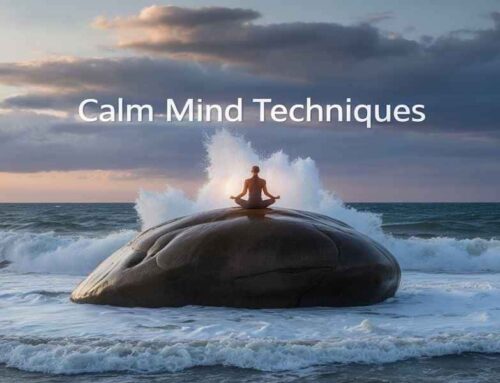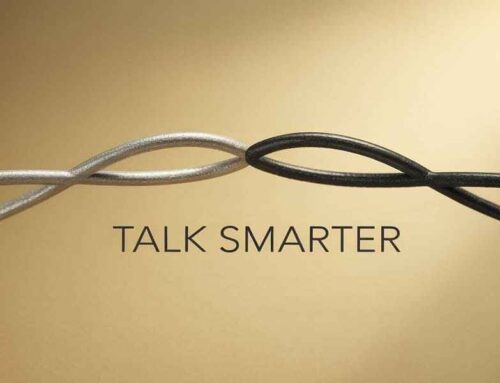
Soft Skills?
Yeah, you heard right. Forget capes. Forget radioactive spiders. Your real superpower? It’s already inside you. It’s those intangible, often overlooked soft skills. Think about it. What separates the good from the truly great in any career?
It’s rarely just technical prowess alone. It’s how you connect. How you adapt. How you lead. How you make others feel. That’s the magic. That’s your path to incredible career success. Ready to unlock it?
What are these elusive powers, really? Soft skills are your personal toolkit for navigating the human side of work. Communication. Teamwork. Problem-solving. Adaptability. Emotional intelligence. Leadership. Work ethic. They aren’t listed on a transcript, but they dictate your trajectory.
Hard skills get your foot in the door. Soft skills kick that door wide open and build the relationships inside the room. Why are they suddenly so critical? The world moves fast. Technology evolves overnight. But human connection? Understanding? Collaboration? That remains constant. That’s the bedrock of sustainable achievement.
Look around your workplace. Who truly excels? The lone coder who never speaks? Or the developer who explains complex ideas clearly, collaborates smoothly and motivates the team? The brilliant analyst whose reports gather dust? Or the one who presents insights persuasively, influencing real decisions?
Technical mastery is table stakes. Soft skills are the multiplier. They amplify your hard skills. They turn individual effort into collective triumph. They build trust. They foster loyalty. They create opportunities you didn’t even see coming.
Ever felt misunderstood? Frustrated when a project stalled because people weren’t syncing? Watched a promotion go to someone less technically qualified? That’s the soft skills gap in action. It stings. But the good news?
Unlike mastering quantum physics, these skills can be learned. Honed. Mastered. They are muscles you can train.
Starting right now.
Communication: Your Superpower’s Megaphone
This is the bedrock. It’s not just talking. It’s listening. Really listening. Understanding. Articulating clearly. Tailoring your message. Think about it. How often do wires get crossed? How much time is lost clarifying? How many conflicts start with a simple miscommunication?
Mastering this is non-negotiable.
- Active Listening: Stop formulating your reply while the other person is talking. Hear their words. Understand their intent. Ask clarifying questions. “So, if I understand correctly, your main concern is X?” This builds rapport instantly.
- Clarity & Conciseness: Ditch the jargon. Get to the point. Know your audience. What does this person need to hear? Brevity is powerful.
- Non-Verbal Cues: Your body speaks volumes. Eye contact. Open posture. Nodding. Be aware of yours. Read others’. It’s half the conversation.
- Written Word: Emails. Reports. Chats. Make them clear, professional and error-free. Sloppy writing screams carelessness. Don’t let it undermine you.
As George Bernard Shaw quipped, “The single biggest problem in communication is the illusion that it has taken place.“ Assume nothing. Confirm everything.
Emotional Intelligence (EQ): Seeing the Invisible Forcefield
This is your radar. Your ability to perceive, understand, manage and use your own emotions effectively. And crucially, to recognize and influence the emotions of others. It’s the core of self-awareness and social grace.
High EQ individuals navigate office politics smoothly. They build stronger relationships. They handle pressure better. They resolve conflict constructively.
- Self-Awareness: Know your triggers. Your strengths. Your weaknesses. How do you react under stress? Journaling helps. Feedback is gold (Seek It!).
- Self-Regulation: Manage your emotional responses. Don’t fly off the handle. Breathe. Think before reacting. Pause is powerful.
- Empathy: Put yourself in their shoes. Truly try to understand their perspective, feelings and motivations. This isn’t agreement; it’s understanding. It builds bridges.
- Social Awareness: Read the room. Sense the unspoken dynamics. Understand organizational culture. Who holds influence? What’s the mood? Adapt accordingly.
- Relationship Management: Build rapport. Inspire others. Influence positively. Manage conflict. Communicate effectively based on your awareness.
Stephen Covey nailed it: “Seek first to understand, then to be understood.“ EQ makes this possible.

Teamwork & Collaboration: The Synergy Engine
Nobody achieves greatness in a vacuum. Modern work is interconnected. Can you play well with others? Can you contribute effectively to a group goal? Can you leverage diverse strengths? This is where soft skills shine, turning a group of individuals into a high-performing unit.
- Reliability: Do what you say you’ll do. Meet deadlines. Be someone others can count on. Consistency builds trust.
- Respect: Value diverse opinions, backgrounds and working styles. Foster an inclusive environment. Everyone has something to contribute.
- Conflict Resolution: Disagreements happen. Can you address them constructively? Focus on the problem, not the person. Seek win-win solutions. Compromise is often key.
- Supportiveness: Celebrate others’ wins. Offer help when needed. Share credit generously. A rising tide lifts all boats.
- Flexibility: Be willing to adapt your role or approach for the good of the team. Ego is the enemy of collaboration.
Helen Keller offered profound insight: “Alone we can do so little; together we can do so much.“ Your collaborative abilities determine how much you actually achieve.
Adaptability & Resilience: Bending Without Breaking
Change is the only constant. New technologies. Shifting markets. Restructures. Pivots. Can you roll with the punches? Adaptability is your shock absorber. Resilience is your bounce-back factor. These soft skills are survival and thrival tools in the modern career jungle.
- Embrace Learning: See change as an opportunity to learn, not just a threat. Be curious. Stay updated in your field and beyond.
- Flexibility: Be willing to adjust plans, priorities and methods quickly. Rigidity breaks; flexibility endures.
- Problem-Solving Under Pressure: When things go sideways (And They Will), stay calm. Assess. Focus on solutions, not blame. Think creatively.
- Optimism (Realistic): Maintain a positive outlook focused on possibilities. Believe in your ability to navigate challenges. This mindset is contagious and powerful.
- Learn from Setbacks: Failure isn’t fatal unless you let it be. Analyze what went wrong. Extract the lesson. Apply it next time. Resilience is built through overcoming adversity.
Charles Darwin understood evolution deeply: “It is not the strongest of the species that survive, nor the most intelligent, but the one most responsive to change.“ Your career is no different.
Problem-Solving & Critical Thinking: The Strategic Mind
Beyond technical fixes, how do you approach complex, ambiguous challenges? Can you see the big picture? Analyze information objectively? Identify root causes? Generate innovative solutions? This blend of analysis and creativity is pure career rocket fuel.
- Define the Real Problem: Don’t jump to solutions. Dig deep. Ask “Why?” repeatedly. What’s the core issue?
- Gather & Analyze: Collect relevant data and perspectives. Look for patterns. Question assumptions (Yours and Others’).
- Brainstorm Creatively: Think outside the box. Encourage wild ideas. Quantity before quality initially. No judgment zone.
- Evaluate Options: Weigh pros and cons. Consider feasibility, impact and risks. Think short-term and long-term.
- Decide & Act: Make a reasoned choice. Implement. Then, crucially, review. Did it work? What would you do differently?
Albert Einstein, a master problem-solver, noted: “We cannot solve our problems with the same thinking we used when we created them.“ Critical thinking demands shifting perspective.
Work Ethic & Professionalism: The Unseen Foundation
It’s the bedrock. Showing up. On time. Prepared. Giving your best effort. Taking responsibility. Acting with integrity. It sounds basic, but consistent professionalism builds an unshakeable reputation. It’s a soft skill that speaks volumes without saying a word.
- Reliability & Punctuality: Be someone others can depend on. Respect others’ time.
- Ownership: Take responsibility for your work and your mistakes. Don’t deflect blame. Learn and fix.
- Initiative: See what needs doing and do it. Don’t always wait to be told. Look for ways to add value.
- Integrity: Do the right thing, even when no one is watching. Be honest and ethical. Your reputation is your most valuable asset.
- Positive Attitude: Approach tasks with energy and a can-do spirit. Negativity drains teams; positivity energizes them.
Vince Lombardi captured the essence: “The price of success is hard work, dedication to the job at hand and the determination that whether we win or lose, we have applied the best of ourselves to the task at hand.“
Leadership (At Any Level): Influence Without Authority
Leadership isn’t just for managers. It’s about influence. Inspiring others. Taking initiative. Making things happen. Demonstrating vision. You can lead from your current desk. Cultivating leadership soft skills is how you get noticed and entrusted with more.
- Vision & Initiative: See opportunities for improvement and take steps to make them happen. Paint a picture of a better way.
- Empowerment: Help others succeed. Delegate effectively. Trust your colleagues. Lift people up.
- Accountability: Hold yourself and others to high standards (With Empathy and Support). Foster a culture of responsibility.
- Decision-Making: Gather input, weigh options, make timely calls and own the outcome.
- Inspiration: Motivate through your actions, enthusiasm and belief in the team and the goal. Be the spark.
John Quincy Adams defined it beautifully: “If your actions inspire others to dream more, learn more, do more and become more, you are a leader.“ Start inspiring now, regardless of your title.
Why This Truly Equals Career Success
Let’s connect the dots. How do these interpersonal abilities translate directly to tangible career success?
- Getting Hired: Your resume shows hard skills. The interview? That’s where soft skills shine. Your communication, confidence and cultural fit seal the deal. Hiring managers always prioritize someone who will mesh well and contribute positively.
- Performance & Promotions: Technical skills help you do your job. Soft skills help you excel at it. Collaborating effectively, solving problems proactively, leading initiatives – this is what gets you noticed and deemed “Promotion Material.” High performers are almost always high in key interpersonal abilities.
- Leadership Roles: As you climb, technical expertise becomes less critical than your ability to lead, inspire, strategize and communicate vision. Leadership is fundamentally a soft skills game.
- Networking & Opportunities: Strong relationships built on trust and mutual respect open doors. Opportunities often come through people who know, like and believe in you. That’s pure soft skills magic.
- Job Satisfaction & Resilience: Understanding yourself and others, navigating conflict well, feeling part of a team – these drastically increase your happiness and resilience at work. You bounce back faster. You enjoy the journey more.
- Future-Proofing: Automation eats hard skills for breakfast. What’s harder to replicate? Empathy. Creativity. Complex problem-solving. Persuasion. Collaboration. These human-centric abilities are your career armor against obsolescence.
Cultivating Your Superpower: The Training Montage
Okay, you’re convinced. But how do you actually build these people skills? It’s a journey, not a flip of a switch. Start here.
- Brutal Self-Assessment: Ask for feedback – from your manager, peers, even friends. Use 360 reviews if available. Be honest with yourself. Where are your gaps? What situations trigger your weaker responses?
- Seek Experiences: Volunteer for cross-functional projects. Join committees. Mentor someone. Take on a stretch assignment that forces you out of your comfort zone. Practice is key.
- Observe Masters: Identify people in your organization renowned for their communication, empathy or leadership. Watch how they operate. What do they do? How do they phrase things? How do they handle pressure? Model their behaviors.
- Invest in Learning: Read books (Dale Carnegie’s How to Win Friends and Influence People is timeless). Take online courses (Coursera, LinkedIn Learning offer many). Attend workshops. Listen to podcasts. Dedicate time.
- Practice Mindfully: Choose one skill to focus on each week. Before a meeting, think: “Today, I will actively listen.” After an interaction, reflect: “How did that go? What could I do better next time?” Small, consistent efforts compound.
- Find a Mentor/Coach: Someone experienced who can guide you, provide specific feedback and hold you accountable can accelerate your growth immensely.
- Embrace Failure as Feedback: You will stumble. You might say the wrong thing. A conversation might go poorly. Don’t beat yourself up. Analyze it. Learn. Adjust. Try again tomorrow. Growth mindset is essential.
The Unbeatable Edge
The landscape of work is fiercely competitive. Technical qualifications are often similar among top candidates. Degrees are common. Certificates abound. What truly differentiates you? What makes you indispensable? What propels you from competent to exceptional?
It’s your human skills. Your ability to connect, inspire, adapt and solve problems with people.
Soft skills are not fluffy extras. They are the hard currency of modern career success. They are the difference between getting the job and loving the job.
Between doing tasks and driving impact. Between being a cog and being a leader. They transform technical ability into tangible results and meaningful relationships.
So, stop underestimating this power. Start investing in it today. Hone your communication. Deepen your empathy. Sharpen your adaptability. Strengthen your collaboration. Build your resilience. Cultivate your leadership. Watch how doors open. See how opportunities multiply. Feel the difference in your daily work life.
Your soft skills are your ultimate career superpower. Unleash them.
CTA
Ready to activate your superpower? Pick one soft skill from this list that resonates most. Commit to one specific action to develop it this week. Share your commitment below – let’s build this power together! What’s your first move?
FAQ: Soft Skills & Career Success
Q1: What exactly are soft skills?
A1: Soft skills are your interpersonal abilities and personal attributes. They govern how you interact, communicate, collaborate, solve problems, adapt and lead. Examples include communication, emotional intelligence, teamwork, adaptability, critical thinking, work ethic and leadership. They complement hard skills (Technical Knowledge).
Q2: Why are soft skills so critical for career success?
A2: Hard skills get you an interview. Soft skills get you hired, promoted and respected. They enable you to build strong relationships, navigate workplace dynamics, lead effectively (Even Without Authority), solve complex problems collaboratively and adapt to change – all essential drivers of tangible career success and advancement.
Q3: Can soft skills really be learned or are you just born with them?
A3: Absolutely, they can be learned and mastered! While some people might have a natural inclination, soft skills are like muscles. You develop them through deliberate practice, self-awareness, seeking feedback, observing others and stepping outside your comfort zone. It’s a continuous journey, not a fixed trait.
Q4: I’m an introvert. Does that mean I can’t have strong soft skills?
A4: Not at all! Soft skills aren’t about being the loudest in the room. Introverts often excel at active listening, deep thinking, empathy and focused work – all crucial soft skills. The key is leveraging your natural strengths (Like thoughtful communication or one-on-one connection) while consciously developing areas like assertiveness or networking in ways that feel authentic to you.
Q5: How do I prove my soft skills in a job interview?
A5: Use the STAR method (Situation, Task, Action, Result) with concrete examples:
- “Tell me about a time you resolved a conflict?” (Show communication & empathy).
- “Describe a challenging project?” (Highlight teamwork, problem-solving, adaptability).
- “How did you handle a difficult deadline or setback?” (Demonstrate resilience & work ethic).
- Ask insightful questions that show curiosity and understanding of the role/team.
Q6: Which soft skills are most important for future career success?
A6: All covered in the post are vital, but these are increasingly crucial due to automation and rapid change.
- Adaptability & Resilience: Thriving amidst constant change.
- Complex Problem-Solving: Tackling ambiguous challenges.
- Emotional Intelligence (EQ): Understanding and managing emotions (Yours & Others).
- Creativity & Innovation: Thinking beyond the obvious.
- Collaboration:Working effectively across diverse teams (Often Remote).
These human-centric skills are hardest to automate.
Q7: How can I start improving my soft skills today?
A7: Pick ONE skill to focus on first (Example, Active Listening). Then:
- Seek Feedback: Ask a trusted colleague or manager for input on that specific skill.
- Practice Mindfully: Before your next meeting, set an intention (“I will listen fully without interrupting”). Reflect afterward.
- Learn: Read a relevant article, watch a short video or take a micro-course.
- Observe: Watch someone known for excelling in that skill. Note what they do.
- Start Small: Focus on tiny, consistent actions daily.
Q8: How do soft skills relate to leadership?
A8: Leadership is fundamentally built on soft skills. You need communication to inspire vision, empathy to understand your team, emotional intelligence to navigate dynamics, collaboration to foster synergy and adaptability to guide through change. You can demonstrate leadership (Influencing, Taking Initiative) at any level using these skills, regardless of your official title.
Q9: Can strong soft skills compensate for weaker hard skills?
A9: To a point, yes, especially in roles heavily reliant on interaction and relationships. Someone with exceptional people skills who can learn quickly is often preferred over a technical expert who is difficult to work with. However, foundational hard skills are usually still required to get your foot in the door. Soft skills amplify and maximize the impact of your hard skills – they are the multiplier.
Q10: How do I measure improvement in my soft skills?
A10: Look for these tangible outcomes.
- Feedback:Are colleagues/managers commenting positively on changes?
- Relationships:Are collaborations smoother? Are you building stronger connections?
- Results:Are projects succeeding more often due to better teamwork or communication?
- Opportunities:Are you being entrusted with more responsibility, leading initiatives or getting promoted?
- Self-Awareness:Do you handle difficult situations or feedback better? Do you recognize your triggers and manage your reactions?
- Comfort Level:Do you feel more confident navigating interpersonal dynamics?














